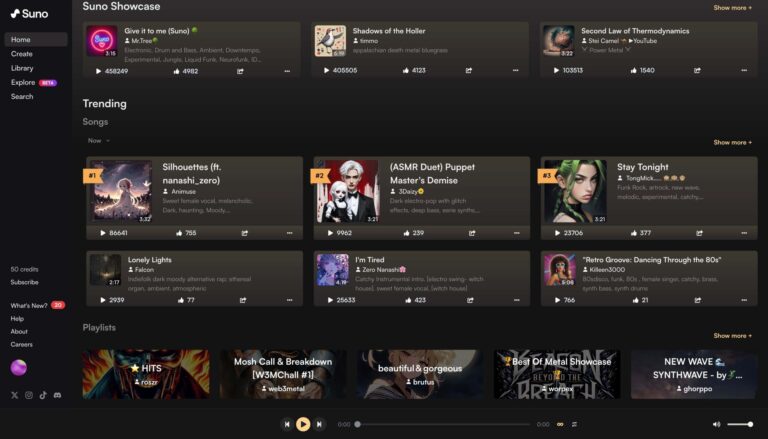VERSY.AI REVIEW 👀
Versy.AI transmutes text prompts into immersive digital domains, bridging the gap between imagination and virtual reality. This platform doesn’t just create spaces; it architects entire digital ecosystems tailored to brand narratives and user interactions.
BENEFICIAL FEATURES 💡
- Lexical Landscape Generator: Unlike traditional 3D modeling tools, Versy.AI manifests virtual environments from mere textual descriptions. Envision a real estate developer conceptualizing entire housing communities through prompts, though this ease might blur the line between visionary design and AI-driven homogeneity.
- Data-Driven Dreamweaver: Uniquely integrates CRM and IoT data to shape user experiences, outpacing static virtual environment creators. A smart home company could create virtual showrooms that adapt in real-time to visitor preferences, potentially revolutionizing product demonstrations while raising privacy concerns.
- Prototype Particle Accelerator: Enables rapid iteration of virtual concepts, a standout in the immersive design space. Automotive designers could test multiple interior layouts in days instead of months, though this speed might overshadow the nuanced craftsmanship of traditional design processes.
- Multi-Verse Maestro: Manages interconnected virtual realms simultaneously, surpassing single-environment platforms. Theme parks could create digital twins of entire resorts, offering virtual previews that seamlessly transition between attractions, but risking over-reliance on digital experiences.
- Gamification Genie: Crafts interactive elements like treasure hunts and leaderboards, unusual for business-focused virtual platforms. While this could transform corporate training into engaging quests, it might trivialize serious learning objectives.
APPLICATIONS 🎯
- Virtual Trade Show Revolutionizer: Conference organizers could create dynamic expo halls that evolve based on attendee interactions, potentially redefining networking in the digital age.
- Immersive Product Configurator: Luxury car brands could offer customers virtual garages to customize vehicles in photorealistic detail, enhancing the buying experience while potentially setting unrealistic expectations.
- Digital Twin City Planner: Urban developers could prototype city designs, simulating traffic flows and citizen interactions before breaking ground, though this might oversimplify complex urban dynamics.
- Virtual Museum Curator: Art institutions could create ever-changing exhibitions that adapt to visitor interests, revolutionizing art appreciation but potentially altering the curator’s traditional role.
- Phobia Treatment Simulator: Mental health professionals could design customized exposure therapy environments, tailoring virtual experiences to individual patient needs.
WHO USES VERSY.AI? 👥
- Visionary Architects: Firms pushing the boundaries of spatial design in both physical and virtual realms.
- E-commerce Innovators: Retailers crafting next-generation virtual showrooms and interactive product experiences.
- Event Experience Designers: Professionals reimagining conferences, trade shows, and large-scale gatherings in the digital space.
- Educational Futurists: Institutions creating immersive learning environments that adapt to student interactions and performance.
- Brand Universe Builders: Marketing teams constructing comprehensive virtual brand experiences that evolve with consumer trends.
READY TO ARCHITECT YOUR DIGITAL DIMENSION? 🔥
Consider Versy.AI’s potential to revolutionize how we conceptualize and interact with virtual spaces. While it offers unprecedented speed and flexibility in creating immersive environments, users must weigh these benefits against the risk of over-digitization and potential loss of tangible, real-world experiences. Could Versy.AI be the key to unlocking new realms of digital engagement, or might it contribute to a future where the line between virtual and physical realities becomes increasingly blurred?







